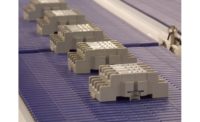ABCO Automation, designer and builder of high-end factory automation systems, has announced the signing of a Value-Added Reseller (VAR) agreement with Visual Components, a global leader of 3D manufacturing factory simulation software. With this agreement, ABCO adds Visual Components simulation software to its service offerings. The software extends ABCO’s current service portfolio, which includes field support, on-site installation, laser safety, system training, project management, and engineering.
“As part of our concepting and designing process, we use Visual Components to provide clients a digital 3D model of their potential system,” says Jack Walsh, EVP, ABCO Automation. “Visual Components is key to helping our clients visualize the design and layout configuration as well as simulate the design’s functionality.”
Walsh continues, “Now as a Visual Components VAR, we can provide our customers with an ancillary product that supplements our Build-to-Print and Design Build processes. We are already gaining interest from clients who see the value in using the software to further vet their design ideas.”
Visual Components combines three engineering disciplines in one platform, including material flow, robotics simulation, and controls validation. With Visual Components 4.0, users design factory layouts with numerous models and factory components, such as pre-engineered conveyor units and industrial robots. Through the software’s visualization, users get an approximate graphical view of a factory or production line, while the simulation function creates an accurate version of the factory or production line with all the components operating in a real environment.
“The key benefit of using Visual Components is cost savings by avoiding process and equipment mistakes on the manufacturing floor,” states Bob Axtman, CEO, Visual Components. “Simulation allows users to see design flaws, test different operations, and make adjustments before committing to a final design. By eliminating virtually all the guesswork, companies can be confident that they will not spend money to rework their system.”






